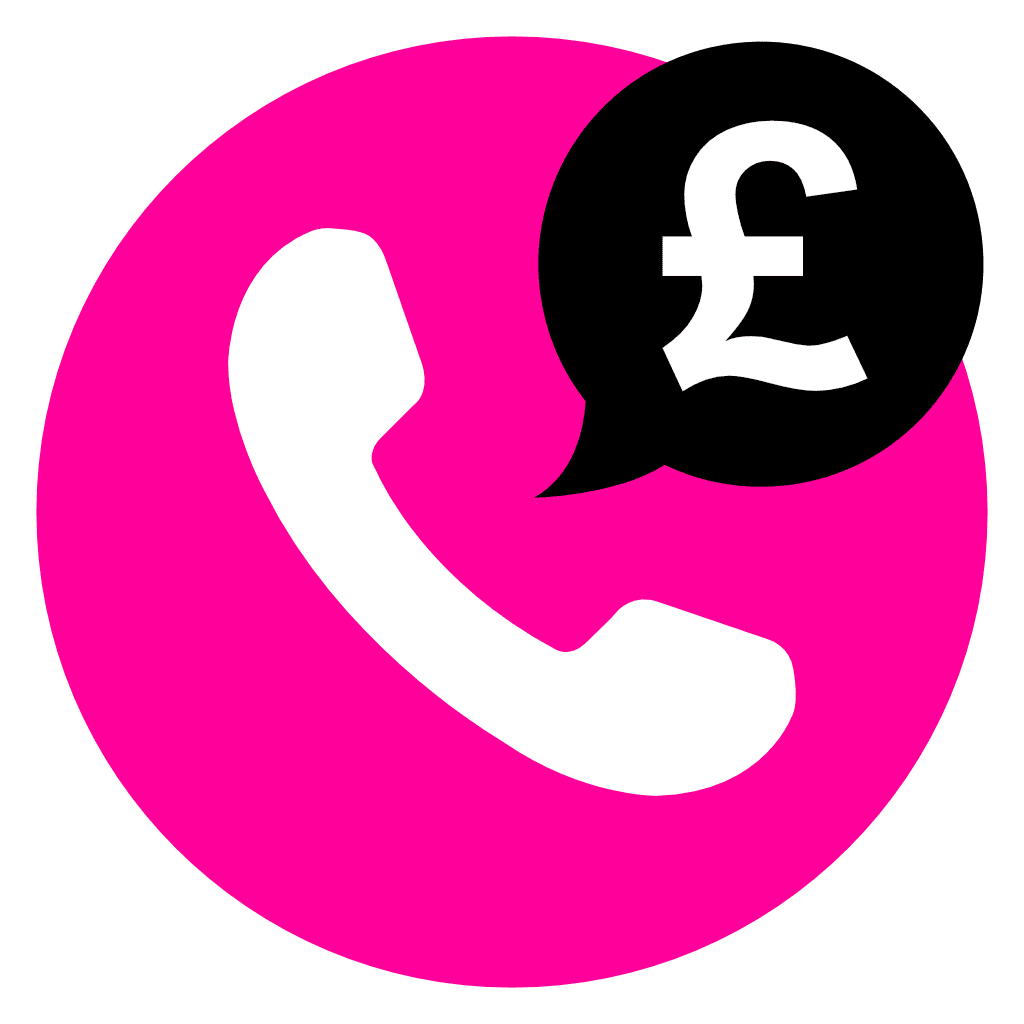For UK businesses navigating the communications landscape, selecting the right VoIP solution is crucial for productivity and customer satisfaction. With a range of providers offering varied features and pricing, Skype and Sipgate often come up as potential choices. This article examines Skype vs Sipgate features, pricing, and best-use scenarios, helping businesses choose the right fit for their unique requirements.
Understanding Skype vs Sipgate
Skype has been a household name in online communication since its launch in 2003, making a mark with its simple interface and global reach. Its acquisition by Microsoft in 2011 brought it into the Microsoft Office ecosystem, adding appeal for businesses that use Microsoft products. Skype is known for video calling but offers VoIP services with call routing, voicemail, and instant messaging, integrating with Microsoft Teams and Office 365 for seamless workflows.
Sipgate, a German-based VoIP provider established in 2004, has a strong presence in the European market and is particularly appealing to small and medium-sized businesses. It offers robust VoIP capabilities with a focus on flexibility and functionality. While less known than Skype, Sipgate provides several advanced telephony options, including call forwarding, voicemail, and a scalable virtual phone system.
| Feature | Skype | Sipgate |
|---|---|---|
| Core Functionality | Video calls, VoIP, messaging, file sharing, screen sharing | VoIP, call routing, virtual numbers, call forwarding |
| Target Audience | Small to medium businesses, teams using Microsoft ecosystem | Small to medium businesses needing advanced telephony |
| Calling & Messaging | Free Skype-to-Skype calls, paid calls to phone numbers, instant messaging | Paid calls with pay-as-you-go model, VoIP call management features |
| Video Conferencing | HD-quality video calls, up to 100 participants | Limited, primarily a voice-focused service |
| Call Quality & Reliability | Generally good, can vary based on internet connection | Reliable high-quality voice with dedicated VoIP infrastructure |
| Integrations | Microsoft Teams, Office 365, Dynamics 365 | CRM tools (Salesforce, Zoho), Zapier |
| Scalability | Limited scalability, mainly for smaller teams | High scalability, flexible pricing structure |
| Security | Standard encryption, GDPR-compliant | Enhanced encryption (TLS, SRTP), GDPR-compliant |
| GDPR Compliance | Yes | Yes |
| Free Plan | Yes, Skype-to-Skype calls are free | Yes, with Sipgate Basic (call rates apply) |
| Paid Plans | Skype Credit (pay-as-you-go), country-based subscription from £2.40/month, Microsoft 365 Business Voice from £12/month | Sipgate Team from £9.95/month per user, customisable add-ons for additional features |
| International Calling | Available with pay-as-you-go credit or subscription plans | Pay-as-you-go with competitive international rates |
| Customer Support | Online help and documentation, no dedicated business support | Business-focused support, setup guidance for advanced features |
| Pros | Free internal calling, strong Microsoft integration, cost-effective global calling | Reliable VoIP quality, scalable, enhanced security, flexible for business telephony needs |
| Cons | Limited advanced telephony features, inconsistent call quality on weak connections | Higher cost for advanced features, limited video and messaging capabilities |
| Best For | Microsoft ecosystem users, small teams needing simple video and VoIP | Businesses requiring reliable VoIP, scalable telephony, GDPR-compliant secure calling |
Feature comparison
To understand which of these VoIP solutions might be better for your business, let’s break down the core features of Skype vs Sipgate.
Calling and messaging
- Skype: Offers free Skype-to-Skype calls and video conferencing, ideal for team communication without cost constraints. Businesses can make calls to traditional phone numbers through Skype’s paid plans. Skype supports instant messaging, file sharing, and screen sharing, which can help streamline internal communication. Integration with Microsoft Teams and Office 365 enhances collaboration for those already using Microsoft’s suite.
- Sipgate: Primarily known for VoIP and telephony services, Sipgate focuses more on scalable solutions for businesses. With Sipgate, businesses get access to traditional telephony features like call routing, virtual numbers, and voicemail, along with mobile app access. Sipgate’s messaging and collaboration features are less extensive than Skype’s but are effective for business telephony and customer-facing communication.
Call quality and reliability
- Skype: Skype’s quality varies based on internet connection, though it offers HD-quality video and voice when conditions allow. Microsoft’s backing provides Skype with server infrastructure, generally ensuring reliability. However, some users report dropped calls or lags during video calls, potentially affecting businesses reliant on real-time communication.
- Sipgate: Sipgate’s reliability is a strong point, particularly for businesses operating in Europe, due to its dedicated VoIP infrastructure. Sipgate consistently provides high-quality voice communication with minimal lag. With its focus on business telephony, Sipgate’s quality is often more stable than Skype for voice-only connections, making it a preferred choice for customer service lines and internal business calls.
Integrations
- Skype: One of Skype’s main selling points is its integration with Microsoft Teams, Office 365, and Dynamics 365. This integration is particularly advantageous for businesses already within the Microsoft ecosystem, as it allows seamless connectivity across tools like Word, Excel, and Outlook, plus powerful collaboration within Teams.
- Sipgate: Sipgate provides integrations with CRM tools such as Salesforce and Zoho, and it also integrates with Zapier for wider automation options. While not as extensive as Skype’s Microsoft ecosystem compatibility, these integrations allow businesses to maintain streamlined communication within customer service and sales functions.
Flexibility and scalability
- Skype: Primarily suitable for small to mid-sized teams, Skype’s scalability is somewhat limited due to its design as a consumer-oriented tool. Although Skype for Business was available previously, Microsoft has since replaced it with Microsoft Teams, which may limit Skype’s flexibility for larger businesses requiring robust features.
- Sipgate: Designed with business scalability in mind, Sipgate offers a flexible pay-as-you-go structure. Sipgate’s team plans allow businesses to add or remove users easily, making it adaptable for growing companies. This scalability, combined with its wide array of telephony features, makes Sipgate a strong choice for businesses seeking a straightforward but flexible VoIP solution.
Security and compliance
- Skype: Skype encrypts calls, video, and messaging by default, adding a level of security suitable for most businesses. However, it lacks more advanced security features compared to dedicated business VoIP solutions. Skype also complies with GDPR standards, which is essential for UK businesses handling customer data.
- Sipgate: Built with GDPR compliance in mind, Sipgate provides enhanced security features like TLS and SRTP encryption, making it more secure for businesses concerned about call data security. Its compliance with data protection regulations is a strong factor for businesses prioritising customer privacy.
Cost comparison – Skype vs Sipgate
Both Skype and Sipgate have different pricing structures tailored to various business needs.
Skype pricing
- Skype-to-Skype calls are free, making it ideal for internal team communication at no additional cost.
- Skype Credit allows pay-as-you-go calling to landlines and mobiles worldwide, making it flexible for occasional calls outside the Skype network.
- Subscriptions for UK businesses start at around £2.40 per month for unlimited calling within a specific country, with global packages available for around £10 per month.
- Microsoft 365 Business Voice (a replacement for Skype for Business) offers a more comprehensive package starting at £12 per month per user, including cloud PBX and advanced telephony features. This may be a consideration if your business is already invested in the Microsoft ecosystem.
Sipgate pricing
- Sipgate Basic is free for businesses that need simple calling features without a monthly commitment, although call rates apply.
- Sipgate Team starts from £9.95 per month per user, including features like call forwarding, virtual numbers, and CRM integration. Additional features, such as extra virtual numbers and advanced routing, incur extra costs.
- International calls are charged on a pay-as-you-go basis with competitive rates, but businesses can customise their plans based on usage, making Sipgate cost-effective for small to medium-sized companies needing flexibility.
Pros and cons
Skype
Pros:
- Free Skype-to-Skype calling, great for internal communication
- Strong integration with Microsoft Teams and Office 365
- Cost-effective global calling options
Cons:
- Limited scalability for larger teams
- Variable call quality on weak internet connections
- Fewer advanced business features compared to dedicated VoIP systems
Sipgate
Pros:
- Strong call quality and reliability, particularly within Europe
- Scalable for businesses of all sizes
- GDPR-compliant with robust security features
Cons:
- Higher costs for additional features
- Limited messaging and video conferencing features
- May require setup assistance for CRM and automation integrations
Choosing the right solution for your business
When to choose Skype: Skype is well-suited for businesses prioritising video calls and integration within the Microsoft ecosystem. It’s ideal for teams needing basic VoIP and messaging capabilities without complex telephony needs. Small businesses and teams that rely on remote collaboration through Microsoft products will find Skype’s integration advantageous.
When to choose Sipgate: Sipgate is a better fit for businesses with higher call volumes, requiring reliable telephony with advanced call features. If your business manages customer service or needs secure, GDPR-compliant calling with flexibility in scaling, Sipgate provides a more robust solution than Skype.
Verdict – Skype vs Sipgate
Both Skype and Sipgate offer unique advantages depending on business requirements.
While Skype excels in video calling and integration within Microsoft’s ecosystem, Sipgate provides a reliable, scalable solution with superior telephony features for customer-focused operations.
Assessing your team’s specific needs in terms of integration, scalability, and budget will help determine the best VoIP service for your business.
FAQ
Skype is designed for video calling, messaging, and basic VoIP, with strong Microsoft integration. Sipgate, on the other hand, focuses on robust telephony features like virtual numbers, call forwarding, and call routing, making it better suited for businesses with advanced telephony needs.
Skype is the better choice for video conferencing, offering HD video quality and hosting up to 100 participants. Sipgate lacks extensive video features, as it is primarily a voice-focused VoIP solution tailored for business telephony needs.
Both Skype and Sipgate comply with GDPR, but Sipgate offers enhanced security through TLS and SRTP encryption. Skype provides standard encryption for calls and messages, but Sipgate’s security is generally stronger, making it preferable for businesses handling sensitive customer data.
Skype integrates with Microsoft Teams, Office 365, and Dynamics 365, making it ideal for businesses using Microsoft. Sipgate, however, integrates with CRM systems like Salesforce and Zoho, and with Zapier, which helps automate various workflows across different platforms.
Sipgate is generally more scalable due to its flexible pricing and robust VoIP infrastructure, making it ideal for growing businesses. Skype is more suitable for smaller teams, but it can be limited in terms of advanced business telephony features as teams expand.
Sipgate generally provides more business-focused customer support and setup guidance, especially for advanced telephony features. Skype’s support is primarily online through help documentation and community forums, with limited options for dedicated business assistance.
Yes, both offer international calling. Skype provides country-based subscription plans or pay-as-you-go credit for global calling. Sipgate also supports international calling with competitive pay-as-you-go rates, which can be customised to specific business needs.
Skype is typically more cost-effective for smaller teams with basic calling needs, offering low-cost plans and free internal calls. Sipgate, while more expensive, provides advanced features and flexibility, making it cost-effective for businesses needing a full-featured VoIP solution.
Sipgate is generally better suited for customer-facing calls due to its stable voice quality, virtual numbers, and advanced call routing features. Skype can handle customer calls, but its consumer-oriented design is less adaptable for structured customer service roles.
Yes, Skype offers free Skype-to-Skype calling, and Sipgate provides Sipgate Basic, a free plan where calls incur per-minute charges. For small businesses, these free plans are suitable for internal or low-volume calling, though paid plans offer more robust features.

